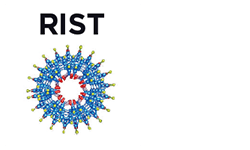An international 2+2 day seminar using visio conf
A programme designed for
R&D managers, Public research managers, Head of Research Units
Objectives
- Identifying clearly the parameters of the R&D Executive’s function and of its main responsibilities and levers.
- Putting into place the actions and attitudes that are essential for a R&D team to function well on a daily basis, with a focus on influence tools.
- Knowing how to position oneself at the right kind of level, with regards to colleagues, subordinates and immediate hierarchic superiors.
- Exchanging views on influence process, roles and difficulties.
- Reinforcing the sense of belonging to a team and to an evolving scientific project.
Our approach
Working on the three dimensions of R&D Team Management
- First dimension of the R&D Team Manager: understanding the notion of management by influence and developing one’s personal impact
- Second dimension of the R&D Team Manager: influencing positively the individual relations between agents
- Third dimension of the R&D Team Manager : leading the group
As we propose to develop not only an “intellectual” understanding but a real behavioural change, the draft we designed is a 2+2 day package.
Programme
First dimension of the R&D Team Manager: Understanding the notion of management by influence and developing one’s personal impact
- Introduction to management by influence: 4 main styles of management, tomorrow’s management and strength of leadership
- Taking into account the complexity of the research team (team members from other institutes, different areas of research, etc.)
- Highlighting the common traits between « scientific spirit » and « offensive strategies »
- Choosing offensive strategies in interpersonal relations process (agents, hierarchic superiors, colleagues, external contacts) by favouring a communication focussed on the influence.
- Giving the questioning (practical, rhetorical, analytical) and the listening processes all the importance they deserve, to encourage reflection, and to communicate suggestions in a positive manner.
Second dimension of R&D Team Manager: Managing positively the individual relation with agents
- Understanding the basis of the agent’s human drivers: competencies and motivation
- Defining, presenting and following an objective in a research environment: the co-elaboration of the objective.
- Putting into place a regular « follow up » of the performances, by integrating the annual interview in a dynamic manner
- Congratulating : Impacting the researcher’s motivation by giving a practical and honest assessment of notable achievements (technical and relational)
- Delegating and allocating responsibility : Transferring know-hows in terms of relations with others, to help the agent succeed with his/her mission
- Transmitting a difficult message by maintaining levels of motivation (end of a project, salary increase not matching the agent’s performance…)
- Refocusing an agent in a positive manner. Level 1 refocusing to encourage the questioning process. Level 2 refocusing in case there is no change.
- Conducting the annual interview: the three keys for success. Listening to maintain motivation; speaking truthfully; managing tense situations in a positive manner (positive disagreement).
Third dimension of the R&D Team Manager: Leading the group
- Inter-session Summary: analysis of experiments conducted between the two sessions
- Reminder of the concepts covered in session 1
- Understanding the three stages of development of a team within a research organization: birth, constitution, defining the vision.
- Developing a coherent and cohesive research team
- Re-motivating a team losing motivation: methods of collective reflection to redefine the expected aim (objectives, ways to get there)
- Building an engaging vision with the team: Strategy of objectives and transforming the vision into action plans.
- Differentiating the different types of meetings: information, conflict resolution, follow up/summary, decision-making.
- Leading a meeting in laboratory , by highlighting the 4 conditions for success: Opening (Road map), Raising interest (The rhetorical mode), Encouraging participation (The iceberg laws), Acting (The offensive plan of action)
- Informing with a four dimensional approach, so as to reduce the phenomenon of inference
- Resolving a problem within a team using creative techniques
- Favouring group decision-making with offensive strategies: Questions of procedures and taking into consideration defence mechanisms
An educational approach
- A topic is suggested to the participants, for example the delegating interview
- Teamed up in sub-groups, the participants think of a practical approach on how to delegate a mission, based on their combined knowledge
- Role play between Team Manager-Agent are led, with all the participants
- Each role play is then analysed, looking at the strengths and the areas to improve, so as to create a trusting environment
- A common thread on how to lead the delegation interview is then suggested by the consultant
- The participants works once more on the delegating interview, based on the new common thread.







